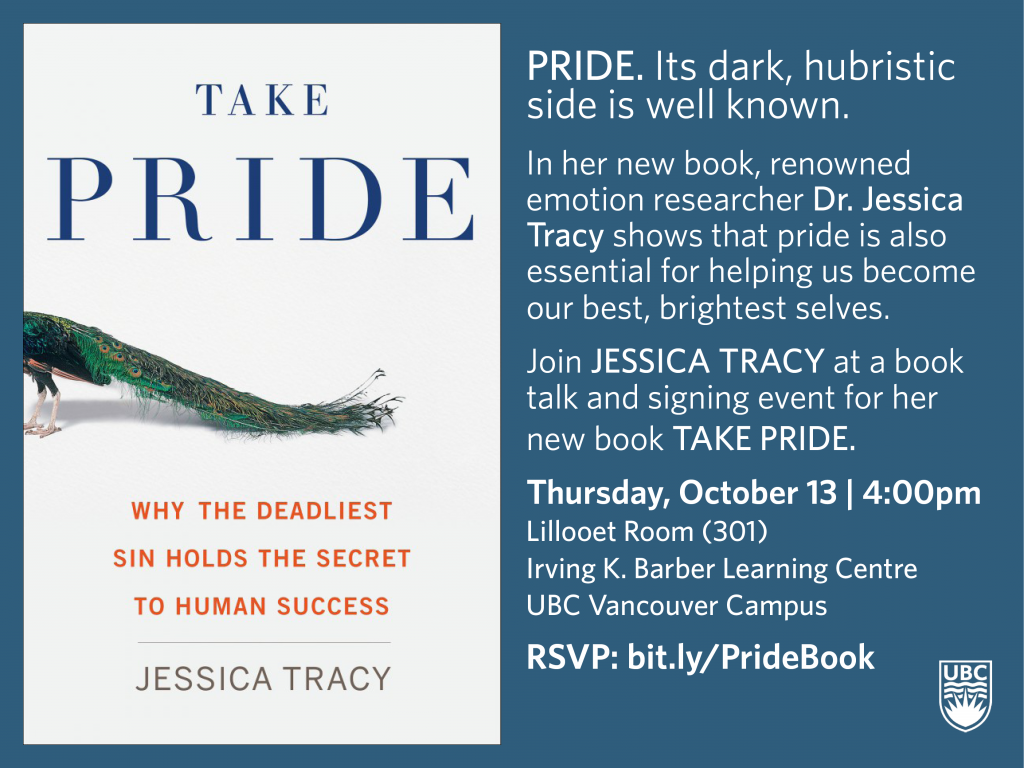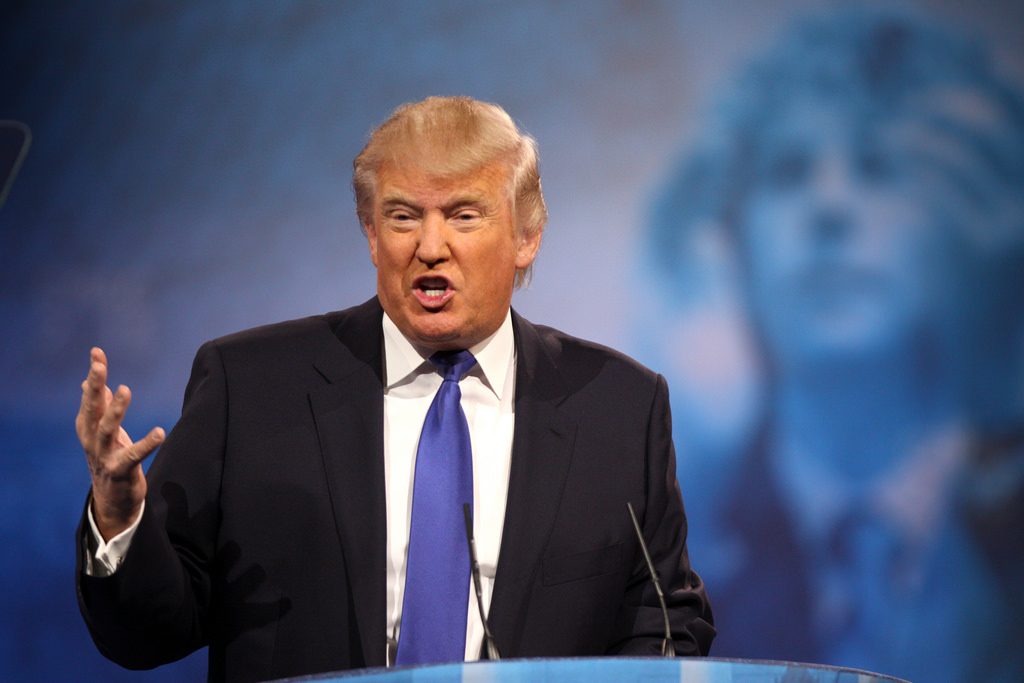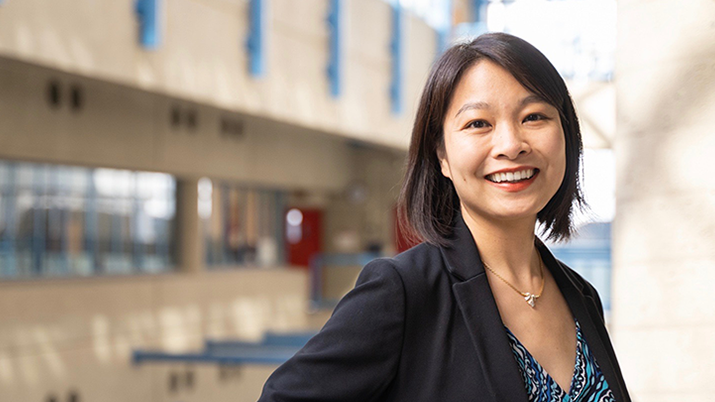Pride is a complex emotion that plays an important role in our lives. In her book, Take Pride: Why the Deadliest Sin Holds the Secret to Human Success, UBC psychology professor Jessica Tracy examines the role of pride in shaping our minds, and how pride helps politicians like Donald Trump attain power.
In Take Pride, you use Donald Trump as an example of hubristic pride. What is hubristic pride, and how does Trump use this form of pride to his advantage?
Hubristic pride is a highly problematic form of pride based on egotism and arrogance. In our research, we have found that people who feel hubristic pride tend to use a dominating and aggressive strategy to get power over others— but the power they attain is not a result of others looking up to them, but rather of others fearing them.
In the case of Donald Trump, hubristic pride has played a major role in getting him where he is, both in business and now in politics. Much of his success can be traced to tactics of intimidation—by calling his competitors names, insulting people and explicitly or implicitly threatening violence against his detractors, he has ensured that many who oppose him will instead defer or retreat.
As for the Americans who support him and vote for him, my sense is that they see Trump as someone who will use his aggressiveness and tactics of intimidation on their behalf—as someone who will forcefully take back something they believe is theirs.
What is pride, and how does it affect our day-to-day lives?


Jessica Tracy
Pride is an incredibly rewarding emotion—it makes us feel great, mainly because it makes us feel great about ourselves. The desire for pride motivates us to do whatever it takes to get that rewarding and self-enhancing feeling. This desire is so strong, it can push us to sacrifice basic needs and easy pleasures, and to work hard over many hours, days, weeks, or even years to attain a goal. Pride is, in short, the reason that many of us choose not to take the easy path, but instead find a way to do something that is challenging but meaningful.
Because we evolved to experience an emotion that makes us want to feel great about ourselves, and therefore become selves we can feel great about, we have accomplished so much more than any other animal species. Our technology, science, art, and even our belief systems and institutions would not exist if we weren’t a species that wanted to feel good about ourselves.
How can we use pride in our own lives to achieve success? And how can we avoid falling victim to hubristic pride?
The key is to accept that pride is part of who we are, and that’s OK. It can even be a good thing. Many of us think that we should not feel or seek pride; that we should strive to be successful or nice or helpful simply because that’s what good, morally upright people do. But pride is the reason we want to be good and morally upright. Evolution made us this way, and it is in our best interest to use it—to accept that a desire for pride is what makes us want to work hard to achieve, to help others, or to be a good parent or relationship partner.
If we know the difference between authentic and hubristic pride, we can use pride in the most ideal way, toward our own ends. But if we succumb to hubristic pride, allowing ourselves to bask in the glory of others’ praise, we might find ourselves engaging in behaviours like bragging and hurting others, which can cost us friendships and relationships. That can create a vicious cycle: the praise we receive becomes no longer tied to actual accomplishments, and knowing that, we begin to feel insecure and doubt whether we’re worthy of all that praise. This can make us defensive; we fight our insecurity by bragging even more.
As for whether you should show your pride to others, the best advice I can offer is to do so with caution. Be aware of social norms about when and where pride displays are acceptable. After winning an Olympic medal, probably yes. After acing an exam that you know your friends failed, probably not.
This Q&A was originally posted on UBC News.
Join Jessica Tracy at a special book talk and signing event for her new book Take Pride: Why the Deadliest Sin Holds the Secret to Human Success on October 13. Interested in your own copy of Take Pride? The UBC Bookstore will be onsite at this event.
RSVP and more details





